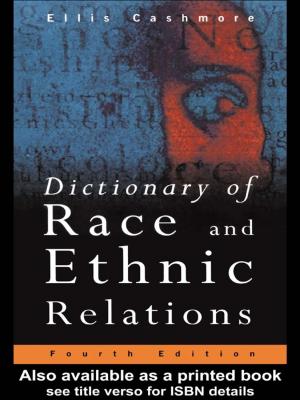The Politics of Violence, Truth and Reconciliation in the Arab Middle East
Nonfiction, Social & Cultural Studies, Political Science, Social Science| Author: | ISBN: | 9781317969075 | |
| Publisher: | Taylor and Francis | Publication: | October 31, 2013 |
| Imprint: | Routledge | Language: | English |
| Author: | |
| ISBN: | 9781317969075 |
| Publisher: | Taylor and Francis |
| Publication: | October 31, 2013 |
| Imprint: | Routledge |
| Language: | English |
In the last five to ten years, pressure for political liberalisation, and the growth of civil society and independent media, inside Arab countries have prompted the debate about violent events in the postcolonial period. This book features studies of six Arab countries in which legacies of political violence have been challenged through various initiatives to promote "truth-telling" and transitional justice.
The analysis departs from a liberal, teleological understanding of truth and reconciliation as a linear process from trauma through memory to national healing. Instead, the articles highlight how the interplay between state-orchestrated initiatives (such as Truth and Reconciliation committees and ministerial committees); civil society actors (including former political prisoners, investigative journalists and NGOs); and external actors (such as transnational NGOs, state sponsored dialogue initiatives, the UN and the EU) is creating a new political field.
The book examines the extent to which this field challenges the Arab nation-state’s monopoly on history and violence, and asks whether public narratives of violence, memory and justice consolidate or challenge political legitimacy of current regimes.
This book was published as a special issue of Mediterranean Politics.
In the last five to ten years, pressure for political liberalisation, and the growth of civil society and independent media, inside Arab countries have prompted the debate about violent events in the postcolonial period. This book features studies of six Arab countries in which legacies of political violence have been challenged through various initiatives to promote "truth-telling" and transitional justice.
The analysis departs from a liberal, teleological understanding of truth and reconciliation as a linear process from trauma through memory to national healing. Instead, the articles highlight how the interplay between state-orchestrated initiatives (such as Truth and Reconciliation committees and ministerial committees); civil society actors (including former political prisoners, investigative journalists and NGOs); and external actors (such as transnational NGOs, state sponsored dialogue initiatives, the UN and the EU) is creating a new political field.
The book examines the extent to which this field challenges the Arab nation-state’s monopoly on history and violence, and asks whether public narratives of violence, memory and justice consolidate or challenge political legitimacy of current regimes.
This book was published as a special issue of Mediterranean Politics.















